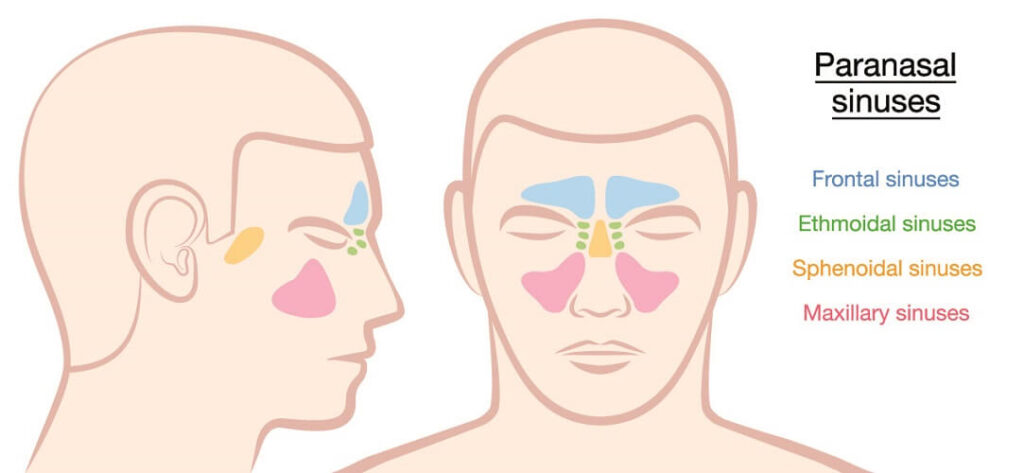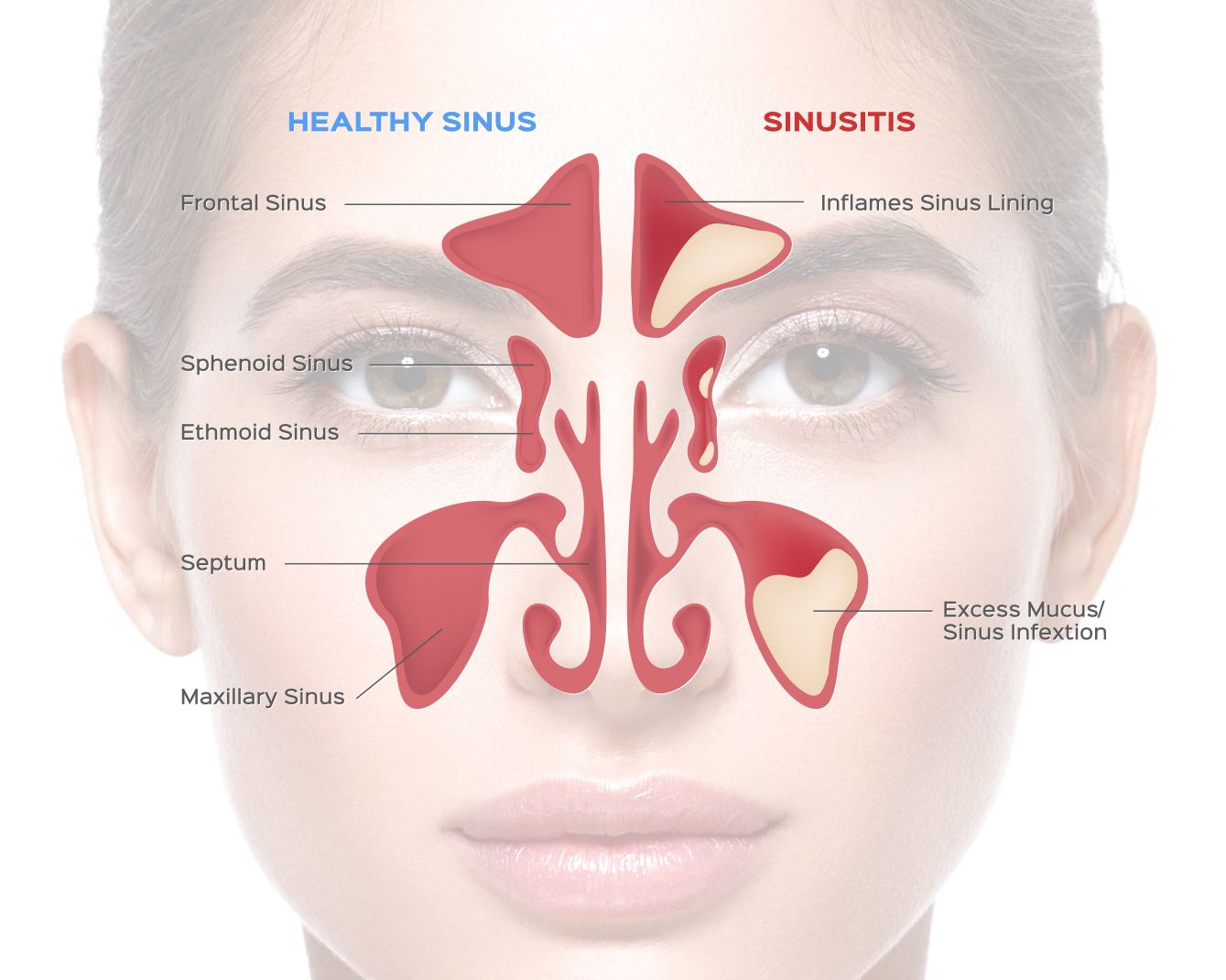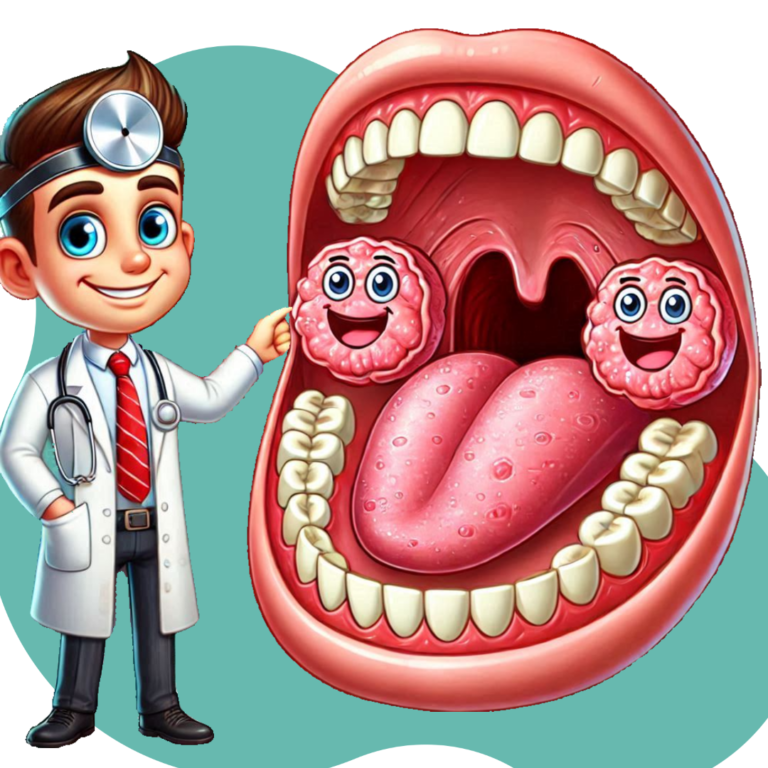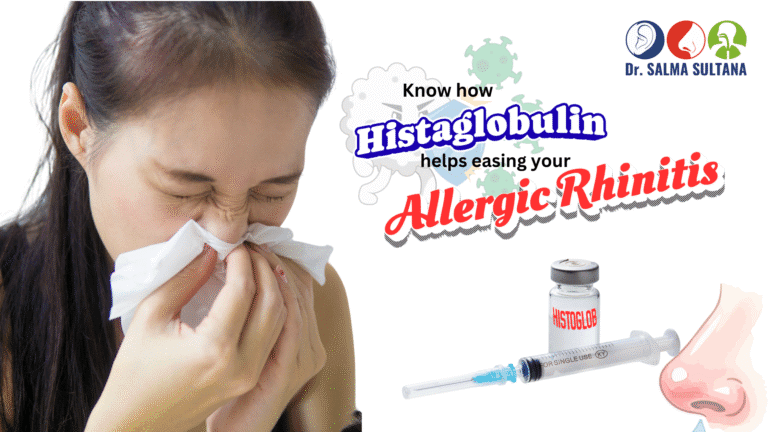Understanding Sinusitis: Symptoms, Causes, and Treatment
Sinusitis is one of the most common health issues, often confused with a common cold or allergies. However, understanding the condition and knowing when to seek treatment can significantly improve your quality of life. This blog will shed light on sinusitis, its symptoms, causes, and how it can be treated.

What is Sinusitis?
Sinusitis, also known as a sinus infection, occurs when the tissue lining the sinuses becomes inflamed or swollen. The sinuses are air-filled spaces located behind your forehead, cheeks, and eyes. Normally, they produce mucus that drains into the nose, helping to keep it clean and free of bacteria. When the sinuses are blocked or filled with fluid, it creates an environment where germs can grow, leading to infection.
Types of Sinusitis
- Acute Sinusitis: Lasts for a short period, usually less than 4 weeks. It is often triggered by colds or bacterial infections.
- Subacute Sinusitis: Symptoms last for 4-12 weeks.
- Chronic Sinusitis: Lasts more than 12 weeks and can recur multiple times throughout the year. Chronic cases often require medical attention.
- Recurrent Sinusitis: Multiple acute sinus infections within a year.
Common Symptoms of Sinusitis
The symptoms of sinusitis vary depending on the severity and type of infection. Some common symptoms include:

- Nasal congestion or stuffiness
- Thick nasal discharge, often yellow or green
- Facial pain or pressure, especially around the eyes and forehead
- Headaches
- Postnasal drip
- Coughing, especially at night
- Reduced sense of smell or taste
- Fatigue
- Fever (in some cases)
Causes of Sinusitis
Sinusitis can be caused by a range of factors, including:
- Viral Infections: Most acute cases of sinusitis are caused by viral infections like the common cold.
- Bacterial Infections: When the sinuses remain blocked, bacteria can grow and lead to bacterial sinusitis.
- Allergies: Conditions like allergic rhinitis can cause inflammation and swelling of the sinuses, blocking the mucus drainage and leading to sinusitis.
- Nasal Polyps: These are small growths in the lining of the nose that can obstruct the sinuses.
- Deviated Nasal Septum: A misalignment of the nasal septum can restrict airflow and contribute to sinus infections.
- Environmental Irritants: Exposure to pollutants, smoke, or strong odors can irritate the nasal passages and trigger sinusitis.
When to Seek Medical Attention
While some cases of sinusitis may clear up on their own, it’s important to consult a healthcare professional if:
- Symptoms persist for more than 10 days.
- You experience severe facial pain or swelling.
- Symptoms worsen after initial improvement.
- You have frequent or recurrent sinus infections.
Treatment Options
Treatment for sinusitis depends on the underlying cause and the severity of symptoms. Common approaches include:
- Nasal Sprays: Saline sprays help to clear mucus, while decongestant sprays reduce swelling in the nasal passages. Corticosteroid sprays may be prescribed for more severe cases to reduce inflammation.
- Medications: Over-the-counter pain relievers like ibuprofen can help with facial pain or headaches. In cases of bacterial sinusitis, antibiotics may be necessary.
- Allergy Management: For those with allergies, antihistamines or allergy shots (immunotherapy) can help manage symptoms and prevent recurrent sinus infections.
- Steam Inhalation: Breathing in steam can help moisten the nasal passages and loosen mucus, making it easier to drain.
- Surgery: In severe or chronic cases where medications are not effective, surgery may be recommended to remove blockages such as nasal polyps or correct a deviated septum.
Preventing Sinusitis
There are several steps you can take to reduce your risk of developing sinusitis:
- Avoid Allergens: Stay away from known allergens, and use an air purifier to keep the air clean.
- Stay Hydrated: Drink plenty of water to keep your mucus thin.
- Practice Good Hygiene: Wash your hands regularly to prevent viral infections.
- Use a Humidifier: Keeping indoor air moist can help prevent your nasal passages from drying out.
- Manage Allergies: If you have allergies, take appropriate steps to manage them and reduce the risk of sinus inflammation.
Conclusion
Sinusitis can be an uncomfortable and persistent condition, but it’s manageable with the right treatment and care. If you experience prolonged or severe symptoms, don’t hesitate to seek medical advice. Early diagnosis and treatment can prevent complications and improve your overall well-being. Keep your sinuses healthy by staying aware of the triggers and following preventive measures!







